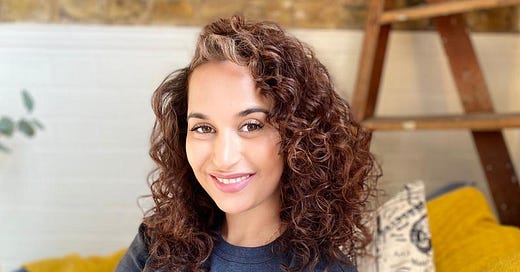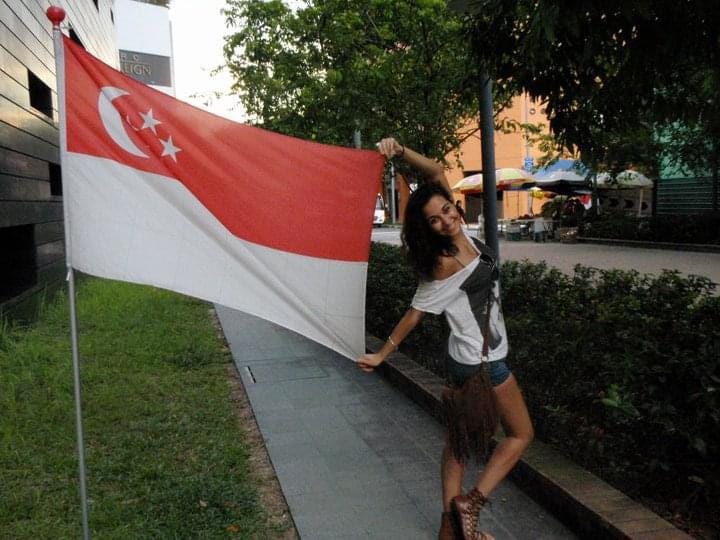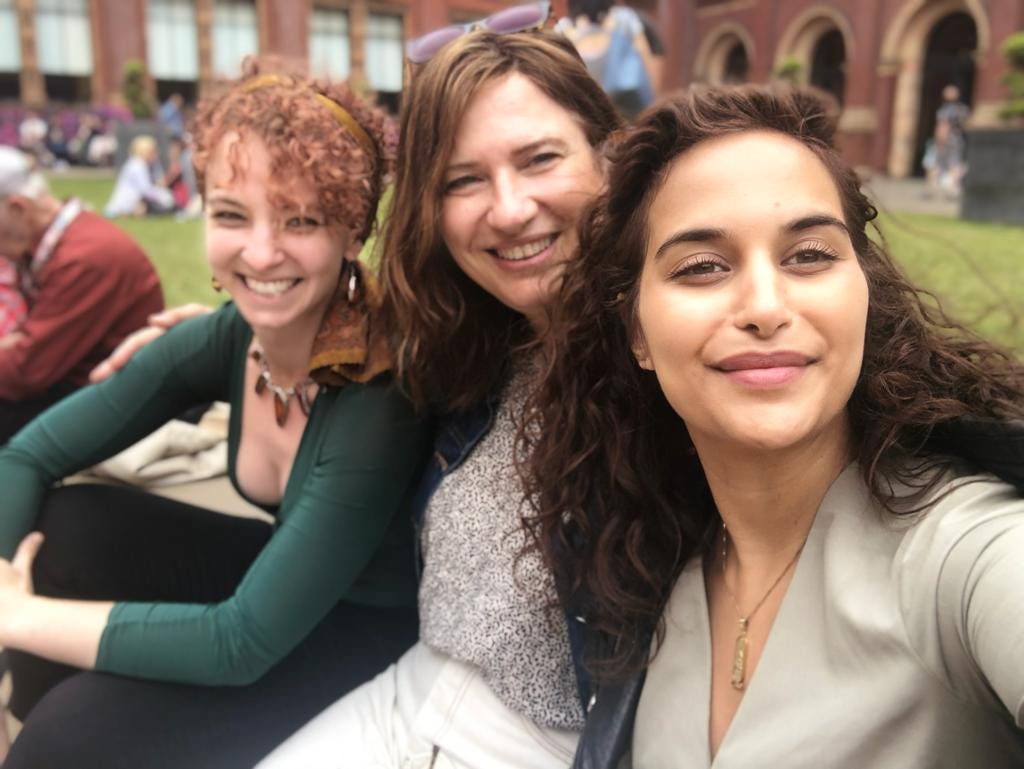Emily Badiozzaman: “Growing up in Singapore sharpened the racism I got in the UK”
The digital director on never feeling specificied and adopting her own culture
Hi, welcome back to Mixed Messages! This week I’m speaking to Head of Digital Content Strategy at Stylist, Emily Badiozzaman, who is of Turkish, Egyptian, Iranian and British heritage. As someone who doesn’t fit into the neat category of having two monoracial parents, I was keen to hear how Emily sees her identity, especially having grown up in a country where white wasn’t the majority racial group.
How do you define your ethnicity?
I always just say mixed because it’s complicated. My parents each have two sides to their heritages: my mum is half-Egyptian and half-Turkish, my dad is half-Iranian, half-British. I grew up in Singapore, so I connect to Singaporean culture as an identity as well.
I remember asking my mum to take me through my ethnicity and she’d explain all four heritages. I’ve never met anybody with the same mix as me.
What was it like to grow up in Singapore?
I had a privileged upbringing; I was in a private international school with kids from all over the place, and I thought that the whole world was like my utopian microcosm where everyone was a different shade of something. Singapore is a melting pot of people from everywhere, and I always felt like I fit in.
Growing up somewhere where white wasn’t the majority sharpened the racism I felt when I came to the UK as a teenager. Britain was so foreign to me. I moved to a tiny village in Scotland with my family and I think we were the only brown people there. It was a wake-up call.
Did you face racism at school?
You were fine until somebody decided to turn on you, and the first thing they would bring up is your race. What surprised me was how inaccurate the races me and my brother used to get were, like Pakistani.
Did you experience your parents’ cultures growing up?
My parents gave me so much freedom to be who I am, which I’ve only started to appreciate as I’ve got older. Even though both of my parents have strong cultural influences around them, I could do or say whatever I wanted and I’m grateful for that.
If you look at me on paper, you can make all these assumptions about my culture, but I didn’t have the same cultural experience as someone else who’s Egyptian, for example. Even though we might share a culture on paper, my experience is different.
Neither of them were religious, so I don’t have that religious identity to draw on. My mum speaks Arabic, but while I understand it from her, I don’t speak it. I’ve had access to Iranian food and that Middle Eastern ethos, but I wouldn’t feel at home in Iran, Turkey or Egypt. It’s been difficult to pick out an identity for myself, so I’ve just adopted what I’ve been given.
How do you refer to your racial identity?
I say brown, but that hasn’t been easy to claim. I’m always just something, never specific. Egyptian identity isn’t clear cut, nor is Turkish heritage with both Asian and European sides. Plus with both of my parents being mixed, it’s complicated. I tend to say British, but it took me a long time to feel that way, especially when I’m visibly picked out as not British.
If you could define your mixed experience in one word, what would that be?
Evolving.
Next week, I’ll be talking to actor, model and presenter Portia Ferrari. Subscribe to get Mixed Messages in your inbox on Monday!
Enjoy Mixed Messages? Consider supporting me on Ko-Fi so I can continue to grow this newsletter!
Mixed Messages is a weekly exploration of the mixed-race experience, from me, Isabella Silvers. My mom is Punjabi Indian (by way of East Africa) and my dad is White British, but finding my place between these two cultures hasn’t always been easy. That’s why I started Mixed Messages, where each week I’ll speak to a prominent mixed voice to delve into what it really feels like to be mixed.






